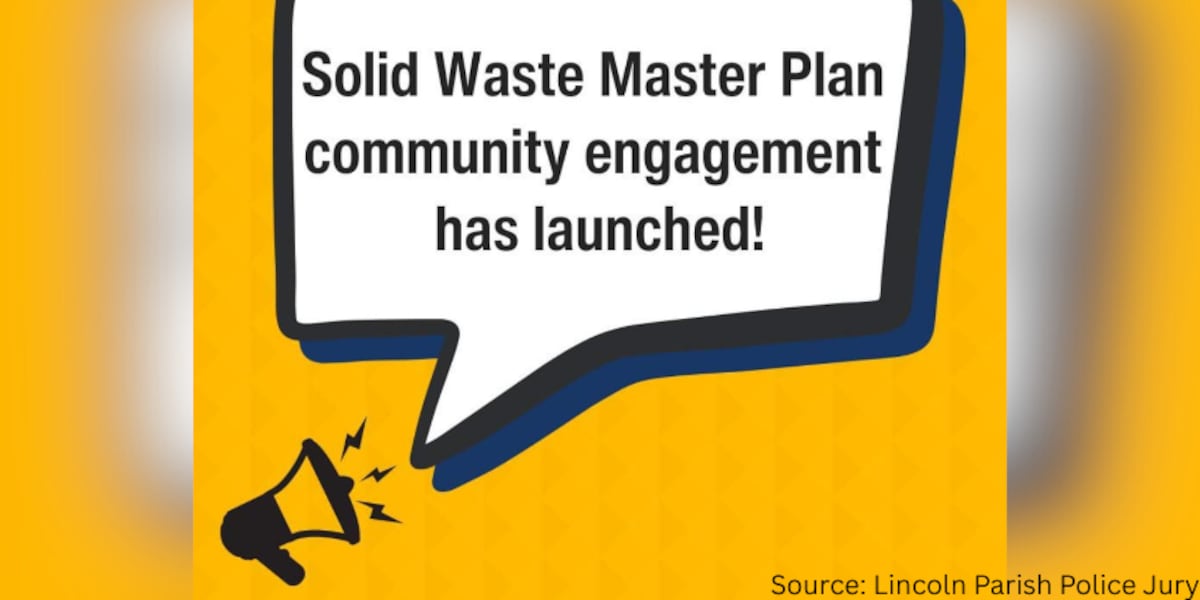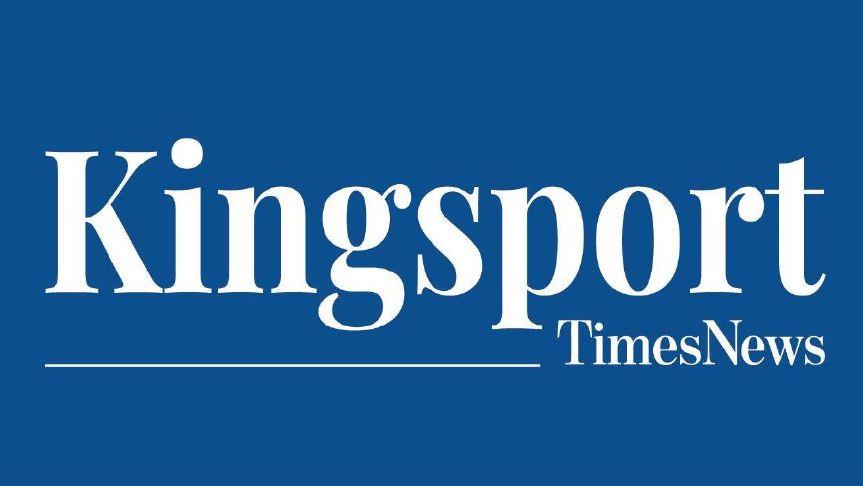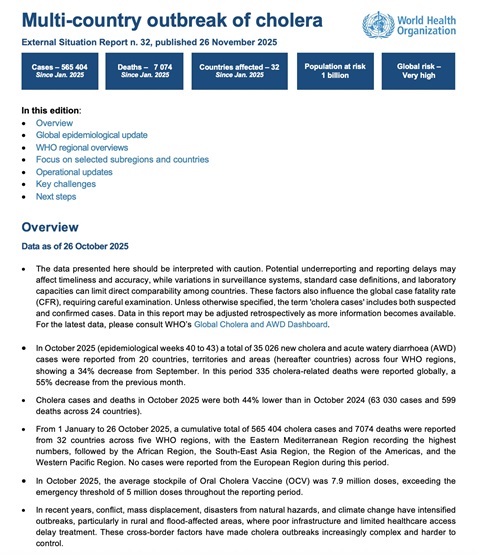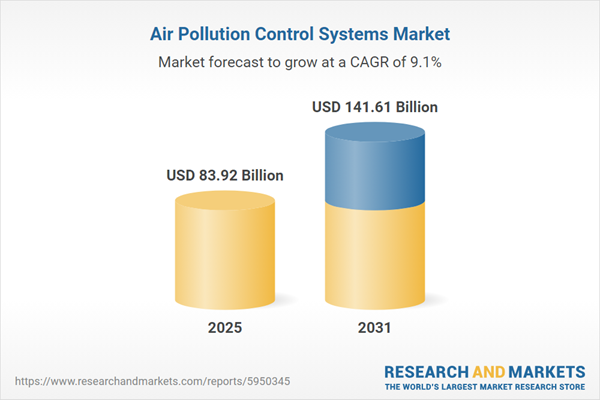Lincoln Parish Police Jury creates ‘Solid Waste Master Plan’ to resolve trash problem – KNOE

Report on Lincoln Parish’s Initiative to Address Waste Management in Alignment with Sustainable Development Goals
Introduction and Context
The Lincoln Parish Police Jury (LPPJ) has initiated a public consultation process to address the challenge of local illegal dumping. The objective is to formulate a comprehensive Solid Waste Master Plan by gathering community feedback, a critical step in creating sustainable and effective local governance solutions.
Alignment with Sustainable Development Goals (SDGs)
This initiative directly contributes to several key United Nations Sustainable Development Goals (SDGs) by addressing waste management as a foundational component of community well-being and environmental stewardship.
- SDG 11: Sustainable Cities and Communities: By tackling improper waste disposal, the parish is working towards Target 11.6, which aims to reduce the adverse per capita environmental impact of cities, including by paying special attention to municipal and other waste management.
- SDG 12: Responsible Consumption and Production: The development of a waste management plan supports Target 12.5, which seeks to substantially reduce waste generation through prevention, reduction, recycling, and reuse.
- SDG 3 (Good Health and Well-being), SDG 6 (Clean Water and Sanitation), and SDG 15 (Life on Land): Resolving the dumping problem mitigates public health risks, prevents water source contamination, and protects local ecosystems from pollution.
Public Consultation and Stakeholder Engagement
In alignment with SDG 16 (Peace, Justice and Strong Institutions), which promotes responsive, inclusive, and participatory decision-making, the LPPJ has implemented multiple channels for public engagement. This approach fosters a partnership between the local government and its residents, a principle central to SDG 17 (Partnerships for the Goals).
- Community Meetings: A series of three public meetings have been scheduled to facilitate direct dialogue and feedback from residents.
- Digital Survey: To ensure broad accessibility, an online survey titled the “Lincoln Parish Solid Waste Master Plan Resident Feedback Survey” is available for virtual participation.
Final Scheduled Engagement Opportunity
The concluding public meeting is scheduled as follows:
- Date: October 23, 2025
- Time: 5:30 PM – 6:30 PM
- Location: Simsboro High School Cafeteria
Analysis of Sustainable Development Goals in the Article
Which SDGs are addressed or connected to the issues highlighted in the article?
-
SDG 11: Sustainable Cities and Communities
- The article discusses a “local trash dumping problem” within Lincoln Parish. This is a municipal issue directly related to creating clean, safe, and sustainable living environments for communities.
-
SDG 12: Responsible Consumption and Production
- The core issue of trash and solid waste management falls under this goal, which aims to ensure sustainable consumption patterns, including the environmentally sound management of waste. The development of a “Solid Waste Master Plan” is a strategic approach to this.
-
SDG 16: Peace, Justice and Strong Institutions
- The article highlights the actions of a local governing body, the “Lincoln Parish Police Jury,” which is actively seeking “community feedback” through meetings and surveys. This demonstrates an effort to build effective, accountable, and inclusive institutions at the local level.
What specific targets under those SDGs can be identified based on the article’s content?
-
Target 11.6: By 2030, reduce the adverse per capita environmental impact of cities, including by paying special attention to air quality and municipal and other waste management.
- The effort to “resolve the local trash dumping problem” and create a “Solid Waste Master Plan” is a direct action aimed at improving municipal waste management, which is a key component of this target.
-
Target 12.5: By 2030, substantially reduce waste generation through prevention, reduction, recycling and reuse.
- A “Solid Waste Master Plan,” which is being developed based on community feedback, is the primary policy instrument for implementing strategies to reduce overall waste generation. Addressing illegal dumping is the first step in a broader strategy that would align with this target.
-
Target 16.7: Ensure responsive, inclusive, participatory and representative decision-making at all levels.
- The article explicitly states that the Lincoln Parish Police Jury is holding “three meetings around the parish for community feedback” and has opened a “survey for community members to share their feedback.” This process is a clear example of inclusive and participatory decision-making.
Are there any indicators mentioned or implied in the article that can be used to measure progress towards the identified targets?
-
Indicator 11.6.1: Proportion of municipal solid waste collected and managed in controlled facilities out of total municipal solid waste generated, by city.
- The existence of a “trash dumping problem” implies that a certain proportion of waste is not being managed in controlled facilities. The success of the “Solid Waste Master Plan” could be measured by a reduction in illegal dumping and an increase in the proportion of waste handled through official channels.
-
Indicator 12.5.1: National recycling rate, tons of material recycled.
- While not explicitly mentioned, a comprehensive “Solid Waste Master Plan” almost always includes provisions for recycling and waste reduction. Progress on this plan would likely be measured by tracking recycling rates and the total volume of waste diverted from landfills, which aligns with this indicator.
-
Indicator 16.7.2: Proportion of population who believe decision-making is inclusive and responsive, by sex, age, disability and population group.
- The use of public meetings and a “Resident Feedback Survey” are direct methods for engaging the public. The results of the survey itself could serve as a proxy for this indicator, gauging whether the community feels their input is valued in the creation of the waste management plan.
Summary Table: SDGs, Targets, and Indicators
| SDGs | Targets | Indicators |
|---|---|---|
| SDG 11: Sustainable Cities and Communities | Target 11.6: Reduce the adverse per capita environmental impact of cities, including by paying special attention to … municipal and other waste management. | Indicator 11.6.1: Proportion of municipal solid waste collected and managed in controlled facilities. |
| SDG 12: Responsible Consumption and Production | Target 12.5: Substantially reduce waste generation through prevention, reduction, recycling and reuse. | Indicator 12.5.1: National recycling rate, tons of material recycled. |
| SDG 16: Peace, Justice and Strong Institutions | Target 16.7: Ensure responsive, inclusive, participatory and representative decision-making at all levels. | Indicator 16.7.2: Proportion of population who believe decision-making is inclusive and responsive. |
Source: knoe.com
What is Your Reaction?
 Like
0
Like
0
 Dislike
0
Dislike
0
 Love
0
Love
0
 Funny
0
Funny
0
 Angry
0
Angry
0
 Sad
0
Sad
0
 Wow
0
Wow
0

















































































